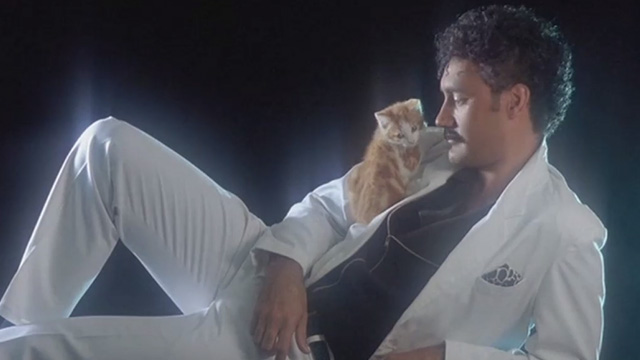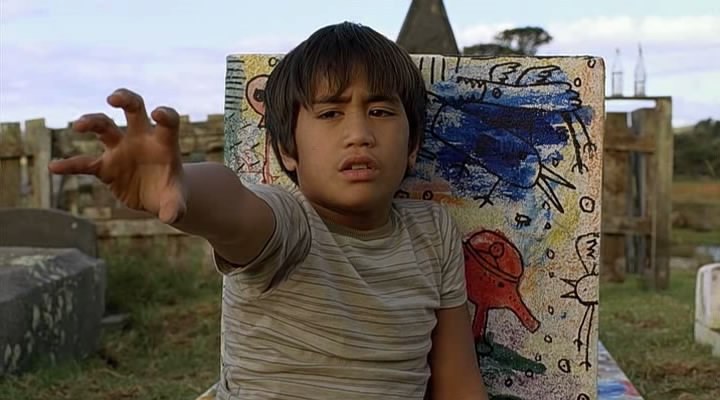After falling in love with Taika Waititi’s way of storytelling in Hunt for the Wilderpeople, I watched his second feature film that is set again in New Zealand, starring another young boy.
Boy is set in the director’s hometown of Waihau Bay in New Zealand in 1984. The title refers to the 11-year-old main character (James Rolleston), who reunites with his father to realize he is far from what Boy has imagined him to be. The film captures how a young boy’s imagination of what a man is changes as he confronts that his father indeed ended up not growing up.
In Boy’s imagination his father is not only a brave war hero, but also a great dancer like Michael Jackson. In fact, his father Alamein (played by Waititi) is a criminal man-child and an absent figure for his sons because he refuses to face his painful past.
The father character wasn’t supposed to be played by the director until six weeks before filming started. Waititi explains why he chose to cast himself: “I was auditioning a lot of people, and the guys I really loved I ended up spending way too much time trying to work on their performances and work on their characters with them.”
Worrying he wouldn’t be able to concentrate on the kids if his focus was on the father, the director choses to play Alamein himself: “I thought I knew exactly what I wanted from the character: I wanted a mixture of comedy, some drama, and some buffoonery, and … to have control over that element, that was something less to worry about, so if I didn’t have to worry about that character, I could concentrate on the kids.”

The coming of age story is delightful not only thanks to great performances of the two boys as well as Waititi himself, but also to the playful editing of the comicstrip-like animations of Rocky’s superpowers. In a TedTalk, the director reveals how these doodles had been one of the various ways for him to express himself, and I thought it was fun see them in a feature film.
Boy’s 6-year-old brother Rocky (Te Aho Aho Eketone-Whitu) is an adorable little boy whose mother died as she was giving birth to him. His guilt caused him to believe he has superpowers, yet it also made him an introvert who kind of lives in his own world.
The film includes re-enactments of Michael Jackson music videos, and ends with a dance outside the narrative. Waititi tells how as kids they used to adapt and make it richer by mixing the traditional with globally popular: “When we were growing up, all Māori kids did [the traditional dance] haka … and you would incorporate or mesh those dances up with contemporary stuff like Michael Jackson moves, or break-dancing.”
Also, I realized a fun detail. The bully that gives Boy a hard time at school is called Kingi, a name we can recognize from Ricky’s haiku from Hunt for the Wilderpeople: “Kingi you wanker / You arsehole, I hate you heaps / Please die soon, in pain.” Waititi apparently likes these references as another one pointing to Ricky is visible in Thor: Ragnarok for the attentive eye: “Skux life,” the graffiti writes on a wall behind Thor.

Basing my thoughts on this film and the Hunt for the Wilderpeople, I noticed that Waititi knows how to make a story more playful and goofy from a child’s perspective. Now, I know I should definitely see Jojo Rabbit, a World War II satire that won this year’s Academy Award for Best Adapted Screenplay.
When Boy came out, it not only became New Zealand’s biggest film ever, but it also was nominated for numerous awards including the Grand Jury Prize at the Sundance Film Festival and won 13 awards, including the Best Feature Film at the Berlin International Film Festival.
